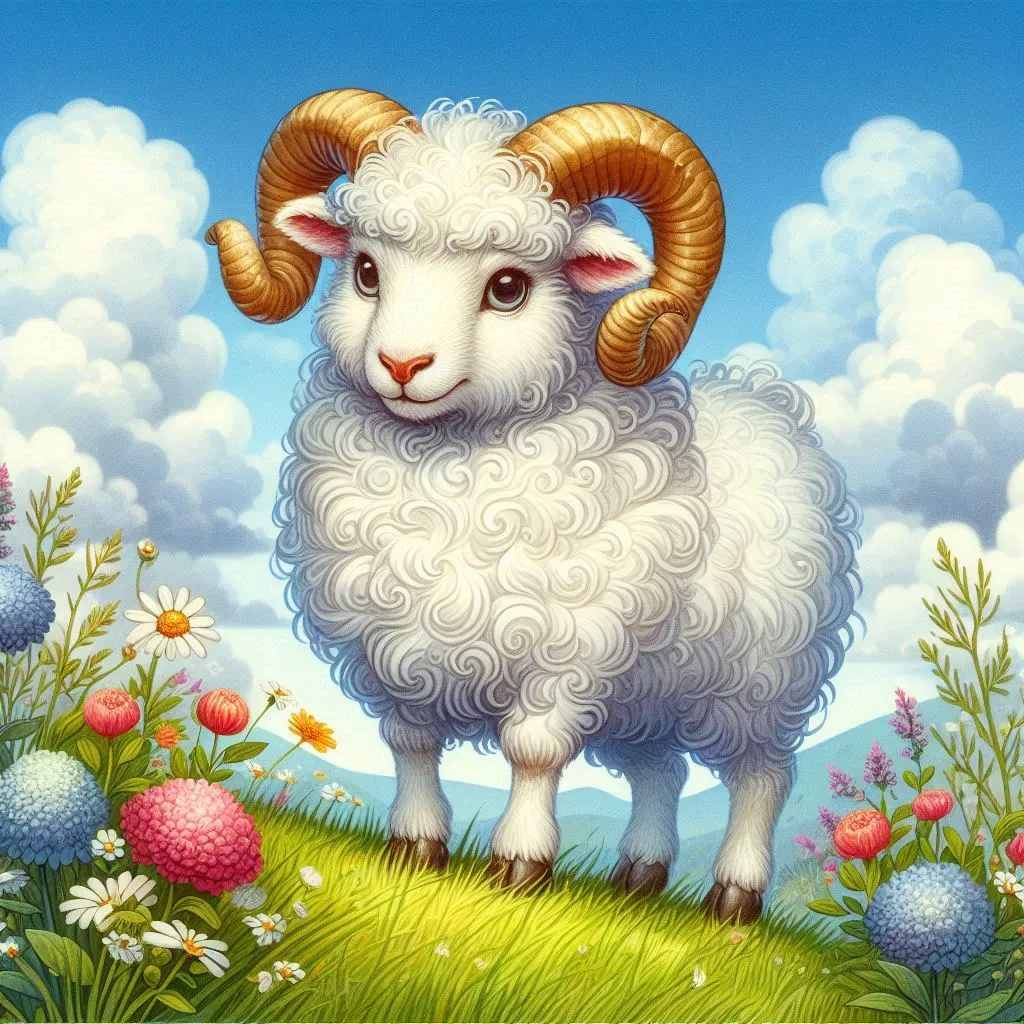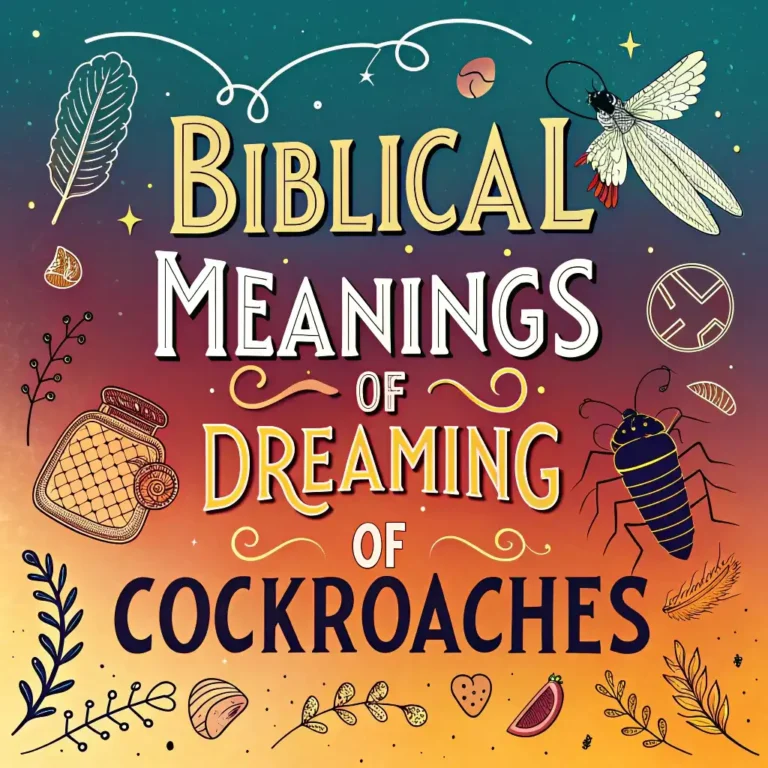Biblical Meaning of Ram: Biblical Roots and Significance
As you explore the biblical meaning of the ram, you’ll discover a rich tapestry of symbolism and significance. This majestic creature, with its imposing physique and powerful horns, represents strength, protection, and sacrifice.
But there’s more to the ram’s story than meets the eye. Its role in the ancient Israelite culture and its connection to pivotal biblical events, such as the sacrifice of Isaac, hold the key to understanding deeper themes of atonement, sovereignty, and divine intervention.
What secrets lie hidden beneath the surface of this seemingly ordinary animal, and how do they continue to resonate with spiritual significance today?
Biblical Meaning of Ram In a Nutshell

- In ancient Israelite culture, the ram symbolized strength, power, and fertility, representing God’s sovereignty and protection.
- The ram’s sacrifice in the biblical narrative of Isaac foreshadowed the ultimate sacrifice of Christ, highlighting the theme of redemption.
- The ram’s horn emerged as a potent emblem of divine intervention, underscoring God’s authority and sovereignty over His people’s lives.
- The ram’s strength and power translated into a symbol of sacrifice and atonement, emphasizing the notion that true freedom comes at a cost.
- The ram’s representation in the Passover story and the Akedah narrative underscored its role in redeeming humanity from the bondage of sin.
The Ram in Ancient Israelite Culture
In ancient Israelite culture, you’d have frequently encountered the ram, an animal that not only played a pivotal role in the daily lives of the Israelites but also featured prominently in their religious rituals and symbolic practices.
The ram’s significance extended beyond its literal presence, as it was often used in ram imagery to convey important cultural and spiritual themes.
In an agrarian society like ancient Israel, the ram’s agricultural significance can’t be overstated. As a symbol of fertility and abundance, the ram represented the Israelites’ deep connection to the land and their dependence on its bounty.
The ram’s role in maintaining the health and productivity of flocks also underscored its importance in the Israelites’ daily lives.
In addition, the ram’s prominence in religious rituals, such as the sacrifice of rams during sacred ceremonies, highlights its revered status in Israelite culture.

Symbolism of Strength and Power
The ram’s imposing physique and formidable horns, which enabled it to defend its flock against predators, also led to its association with strength and power in ancient Israelite culture.
As a symbol of might, the ram embodies the qualities of a mighty protector, fiercely defending its own against any threat.
Its powerful build and aggressive demeanor make it a formidable force, capable of taking on even the most intimidating challenges.
In biblical narratives, the ram’s strength and power are often linked to God’s sovereignty and protection.
The ram’s ability to safeguard its flock serves as a metaphor for God’s role as a fierce warrior, fighting on behalf of His people.
This symbolism is evident in passages like Psalm 23, where God is portrayed as a shepherd, guiding and protecting His flock with mighty power.
Connection to Sacrifice and Atonement
How does the ram’s strength and power translate into a symbol of sacrifice and atonement, particularly in light of its role as a substitute for Isaac in the biblical narrative of Abraham’s test of faith?
As you explore into the biblical account, you’ll discover that the ram’s might isn’t just a display of physical prowess, but a powerful metaphor for redemption. The ram’s sacrifice serves as a substitute for humanity’s sin, underscoring the notion that true freedom comes at a cost. This selfless act embodies the concept of redeeming value, where the innocent takes the place of the guilty, absolving humanity of its transgressions.
In this context, the ram’s strength isn’t just about physical might, but about the unwavering commitment to atone for humanity’s shortcomings. As you reflect on the ram’s role, you’re reminded that true atonement requires a penitent heart, willing to acknowledge and surrender to a higher power.
The ram’s sacrifice serves as a poignant reminder of the gravity of sin and the necessity of repentance, illuminating the path to true liberation. As you ponder the ram’s connection to sacrifice and atonement, you’re invited to confront your own heart, and surrender to the redemptive power that sets humanity free.
Representation in the Passover Story
As the narrative of Abraham’s test of faith sets the stage for a deeper understanding of redemption, the Passover story further illuminates the ram’s symbolic significance, with the sacrificial lamb serving as a poignant reminder of the ram’s atoning power.
You find yourself immersed in the epic tale of Jewish liberation from Egyptian slavery, where God’s mighty hand intervenes to free His people. The Passover lamb, a substitute for the firstborn sons, foreshadows the ultimate sacrifice of Christ, just as the ram substituted for Isaac.
Both narratives underscore the ram’s role in redeeming humanity from the bondage of sin. Within this framework, you begin to grasp the profound significance of the ram’s sacrifice, which not only spared Isaac’s life but also prefigured the liberation of God’s people from spiritual slavery.
As you reflect on the Passover story, you realize that the ram’s representation isn’t limited to a single event, but rather embodies the overarching theme of redemption, underscoring the profound connection between sacrifice, atonement, and freedom.

Abraham’s Ram and the Akedah
Delving into the intricate narrative of the Akedah, the ram that Abraham sacrificed in place of Isaac emerges as a symbol of divine supply, underscoring the patriarch’s unwavering faith in God’s sovereignty.
The ram, caught in the thicket, becomes an unexpected substitute, exemplifying divine obedience and intervention. As you reflect on this ancient story, you’ll realize that the ram represents God’s supply in the midst of uncertainty, demonstrating that true freedom lies in surrendering to the divine will.
Abraham’s obedience, despite the unimaginable request, showcases his trust in God’s goodness and sovereignty. The Akedah narrative thus presents a powerful model for your own faith journey, encouraging you to surrender your deepest fears and desires to the God who provides.
The Ram’s Horn and Divine Intervention
In the biblical account, the ram’s horn, an oft-overlooked yet symbolic element, emerges as a potent emblem of divine intervention, underscoring the notion that God’s providence can manifest in the most unexpected ways.
As you explore into the narrative, you’ll discover that the ram’s horn serves as a powerful symbol of God’s authority and sovereignty.
It’s a clarion call, proclaiming God’s divine authority over the lives of His people.
The sound of the ram’s horn is more than just a mere noise; it’s a declaration of sound salvation.
It announces the arrival of God’s deliverance, signaling that He’s about to intervene on behalf of His people.
When you hear the ram’s horn, you’re reminded that God is always ready to intervene, to rescue, and to redeem.
The horn’s blast shatters the silence, casting out fear and uncertainty, and ushering in hope and liberation.
As you reflect on the ram’s horn, you’re invited to trust in God’s providence, knowing that He’s always working on your behalf, even when the circumstances seem darkest.
Spiritual Significance in Modern Times
Today, the ram’s horn continues to resonate with profound spiritual significance, beckoning you to revisit the timeless truths of divine intervention and sovereignty in your own life.
As you reflect on the biblical narrative, you’re invited to explore the symbolic connections between the ram and your personal faith journey.
The ram’s horn, a powerful emblem of redemption, can become a potent catalyst for Faith Renewal in your life.
By embracing its Personal Symbolism, you can tap into the liberating power of God’s sovereignty, freeing you from the shackles of doubt and fear.
In modern times, the ram’s horn serves as a poignant reminder of God’s faithfulness, encouraging you to trust in His providence and guidance.
As you navigate life’s complexities, the ram’s horn can become a beacon of hope, illuminating your path and reminding you of the divine presence that accompanies you.
By internalizing the spiritual significance of the ram, you can experience a deeper sense of freedom, unencumbered by the burdens of anxiety and uncertainty.
Will you answer the call to revisit the timeless truths of the ram’s horn, and allow its symbolism to transform your life?
Frequently Asked Questions
Is the Ram a Symbol of Good Luck in the Bible?
You might assume the ram is a symbol of good luck in the Bible, but its symbolism runs deeper, representing Divine providence, where God intervenes in human affairs, often unexpectedly, to bring about redemption and freedom.
Can a Ram Represent a Person in Biblical Prophecy?
As you explore into biblical prophecy, you’ll find that a ram can indeed represent a person, embodying characteristics like strength and stubbornness, which often symbolize human weaknesses, such as pride and rebellion, that require redemption.
Are Rams Mentioned in Any Biblical End-Time Prophecies?
As you explore biblical end-time prophecies, you’ll find rams are indeed mentioned, symbolizing powerful nations and leaders that will attempt global conquest, ultimately facing Divine judgment for their oppressive regimes.
Do Rams Have Any Connection to Angels in the Bible?
You’ll find that angels, as angelic messengers, are often depicted as warriors, but you won’t find a direct connection between rams and angels in the Bible, although Heavenly warriors, like Michael, fight against evil forces, symbolizing strength and protection.
Is the Ram a Representation of Jesus Christ in Any Way?
As you excavate into the symbolism of the ram, you’ll discover a profound connection to Jesus Christ, particularly in the context of divine sacrifice, where the Passover parallel highlights the ram’s role as a substitutionary offering, foreshadowing Christ’s ultimate sacrifice.

Hi, I’m Aurelia Starfrost, your spiritual guide at InsightfulSpiritual.com. I love exploring ancient wisdom and modern practices to help you on your journey. With a focus on meditation and energy healing, I’m here to guide you to find solace within and discover your spiritual essence.







